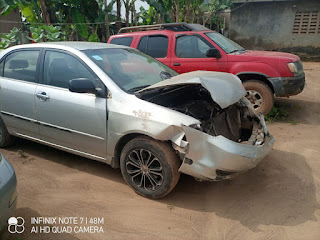can i sue a mechanic for not fixing my car
When you entrust your vehicle to a mechanic for repair, you expect them to diagnose and fix the problem correctly. However, what happens when the mechanic fails to fix your car or the repairs do not solve the issue? Can you take legal action against them? In this blog article, we will explore the possibilities of suing a mechanic for not fixing your car, the potential grounds for a lawsuit, and what you need to know before pursuing legal action.
Before delving into the legal aspects, it’s important to understand that not all car repairs are guaranteed to be successful. Mechanical problems can be complex, and there may be situations where additional repairs or troubleshooting are required. However, if you believe that the mechanic’s incompetence or negligence has led to the failure of resolving the issue, you may have a case.
1. The Mechanic’s Duty of Care
In order to sue a mechanic, you must establish that they owed you a duty of care. This means that the mechanic had a responsibility to perform the repairs with reasonable skill and care. If they failed to live up to this standard, you may have a valid claim.
2. Breach of Duty
Next, you need to prove that the mechanic breached their duty of care. This can be done by showing that they made mistakes, failed to diagnose the problem accurately, or used faulty parts during the repairs.
3. Proof of Damages
In any legal case, it is crucial to demonstrate the damages suffered as a result of the mechanic’s negligence. This could include the cost of additional repairs, loss of use of your vehicle, or any other financial losses directly caused by the mechanic’s failure to fix your car.
4. Seeking Expert Opinions
Consulting other expert mechanics can significantly strengthen your case. Getting their professional opinions and written reports about the faulty repairs or negligence can serve as strong evidence when building your case against the mechanic.
5. Mediation and Arbitration
Prior to filing a lawsuit, it may be beneficial to explore mediation or arbitration to resolve the dispute. These alternative dispute resolution methods can save time and money compared to going to court.
6. Small Claims Court
If the amount in dispute is relatively small, you may consider pursuing your claim in small claims court. This provides a simplified and expedited process to resolve your dispute without the need for an attorney.
7. Hiring an Attorney
If the damages are substantial, it is advisable to hire an experienced attorney who specializes in automotive law. They can guide you through the legal process, gather evidence, and represent your interests in court if necessary.
8. Statute of Limitations
Be aware that there is a time limit within which you can file a lawsuit against the mechanic. This varies by jurisdiction, so it’s essential to consult an attorney to ensure you don’t miss the deadline.
9. Documentation and Evidence
To strengthen your case, gather all relevant documents such as invoices, repair records, photographs, and any communication with the mechanic. These pieces of evidence can support your claims and establish a timeline of events.
10. Settlement Negotiation
Prior to going to court, you may have the opportunity to negotiate a settlement with the mechanic or their insurance company. This can save you time and potentially provide a satisfactory resolution without the need for a trial.
In conclusion, while it is possible to sue a mechanic for not fixing your car, it is essential to have a solid case supported by evidence. Understanding your rights, seeking professional opinions, and carefully considering the potential costs and benefits of legal action can help you make an informed decision. Remember, consulting with an attorney who specializes in automotive law is crucial to navigate the complexities of the legal system and increase your chances of a successful outcome.
can you sue a mechanic for misdiagnosis
